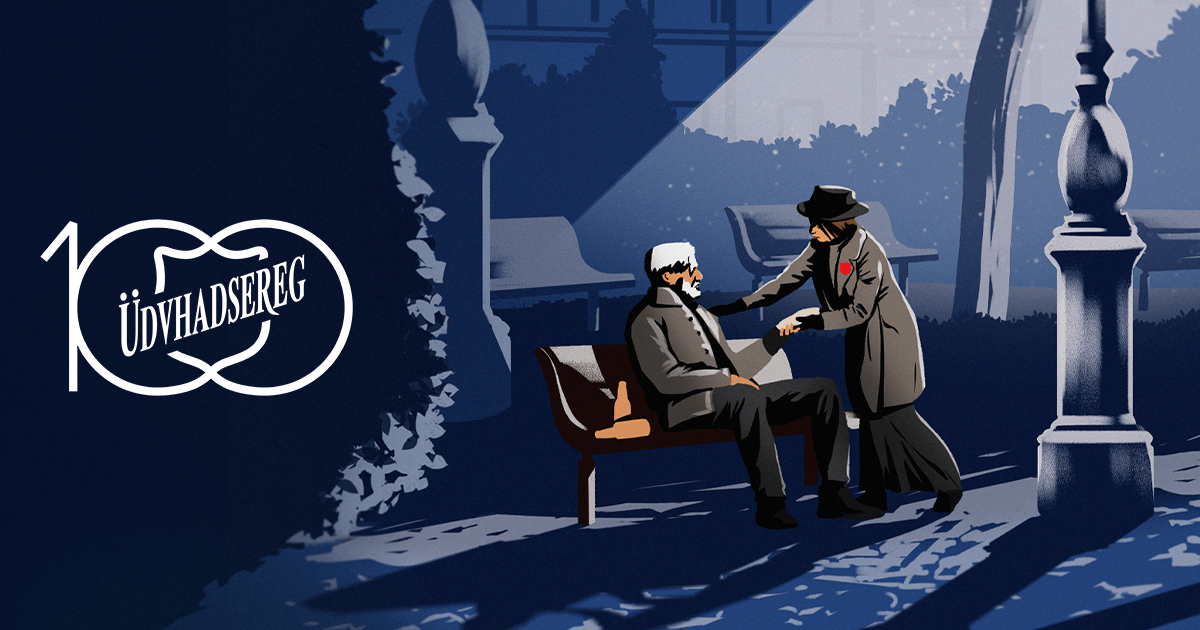100 years ago, in 1924, work began in Hungary. The International Salvation Army was founded much earlier, in East London in 1865.
There was a great need for the Salvation Army in a war-torn and mutilated country, with unemployment, poverty and despair. 25 years later, in 1949, after the communist takeover, we were closed down, but in 1990 we were able to start our charitable work again. We now run 8 churches and 5 social institutions across the country. This year we celebrated our 100th anniversary.
The International Salvation Army was founded much earlier, in East London in 1865. It was the home of Methodist minister Willam Booth and his family, who, as well as preaching the gospel, worked tirelessly for the social and moral uplift of the population. Even then, the East End, which had been populated during the 19th century, was synonymous with crime, squalor and violence, and was a place that all well-meaning Londoners avoided by a long way. It was here that Booth, in addition to his ministry, conceived the idea of providing a better life for the destitute, and so he fought against religious indifference and poverty in the name of the three S's - soup, soap and salvation.
On July 5, 1865, William Booth and his wife Catherine founded the Salvation Army, one of the most prominent charitable organizations in Protestant Christianity. Modelled on the British military, the Salvation Army, which combined missionary work with social welfare for those on the margins of society, has now reached more than 134 countries.
After England and America, representatives of the organisation have reached all five continents and have set up their military community headquarters in 134 countries. The Salvation Army's expansion after the Second World War was severely set back by the emergence of the bipolar world order and socialism, and the fate of Booth's movement in Hungary was accordingly shaped: the organisation settled in Budapest in 1924, then ceased its activities in 1949, after the Communist takeover, before resuming its charitable work in 1990.
By the 20th century, the Salvation Army had become one of Christianity's most effective New World standard-bearers, providing a way out for the downtrodden in society in every era.
Today, in Hungary, there is a community whose members serve as soldiers of God. Our mission is to help those who have lost all hope, those who have nothing left to trust, those who have no one to reach out to. We take abused women and children, the homeless, prostitutes under our wings.
Following the re-launch, the first institution in Budapest, the New House of Hope, which is still a men's shelter, opened in 1990 in Dobozi Street, District 8. Five years later, the House of Light Mother's Home opened its doors to abused mothers and their children, and in '97, a women's rehabilitation centre called the House of the Crossroads opened in Rákoscsaba. In 2006, a church was opened in Józsefváros, Debrecen and Gyöngyös, and the Hope Centre was opened. Churches were opened in Miskolc, for example, and later in Sajókaza. After 2013, the work has been extended to several new areas, including the establishment of the Salvation Army's anti-trafficking task force in Budapest. The Central Office of the Salvation Army is currently located in Terézváros, in the 6th district of Budapest, where donations are also accepted by appointment.
Source: Salvation Army | Communications Department
Date: 08 March 2024.
Image source: Salvation Army




